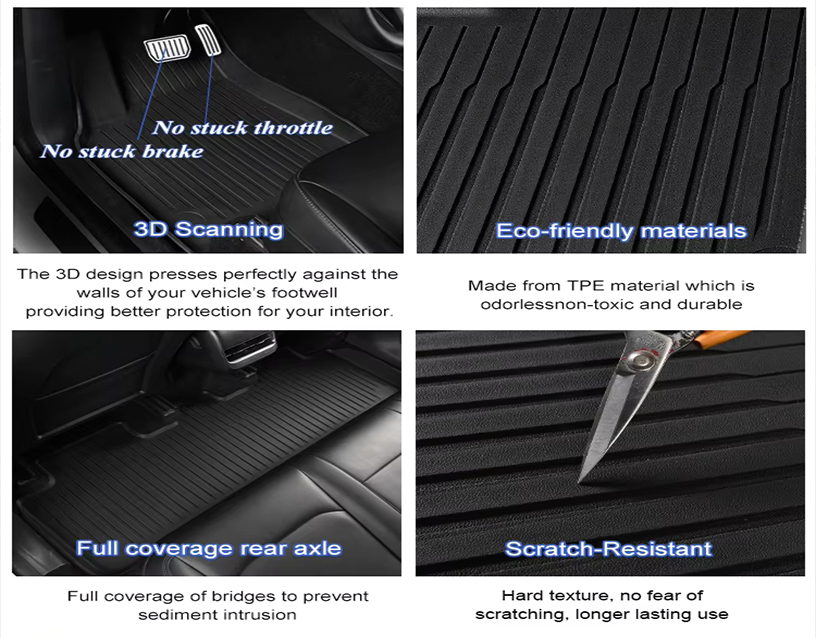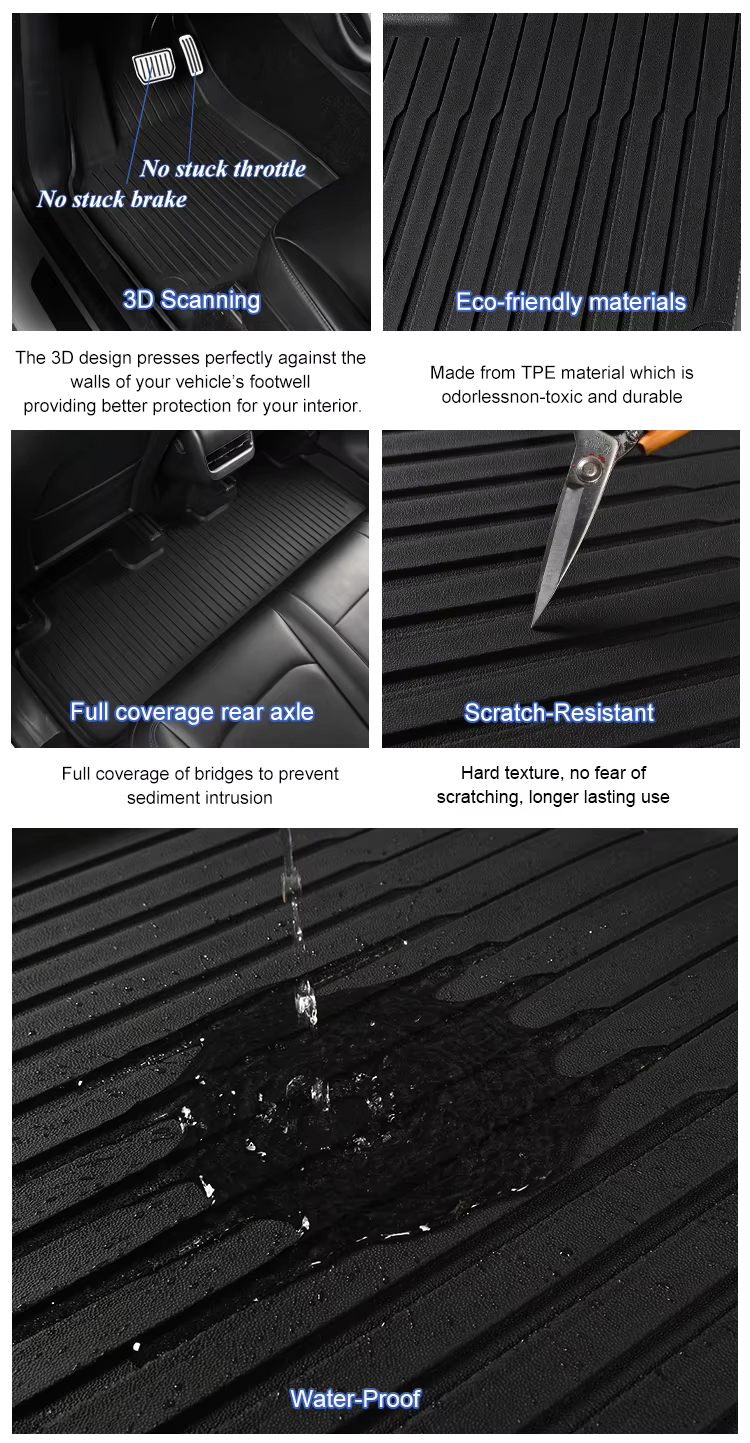China is one of the global centers of auto parts manufacturing, and its car mats have attracted many international buyers with their high-quality materials, rich designs and high cost-effectiveness. However, cross-border procurement involves many details, especially for products such as car mats that need to take into account quality, functionality and design. Here are the key points to pay attention to when purchasing car mats from China to help you avoid potential risks and ensure a smooth transaction.
- Determine the demand: understand the market and product positioning
Before purchasing, it is important to clarify your market demand and product positioning. Here are a few questions to consider:
- Material selection: Common materials include PVC, TPE, TPR, rubber, leather and knitted fabrics. Different markets may have different requirements for environmental protection and durability. For example, the European and American markets prefer environmentally friendly materials (such as TPE).
- Functionality: Do you need waterproof, anti-slip, high temperature resistance or easy cleaning functions? Do you need personalized designs such as embroidery or printed logos?
- Vehicle compatibility: Determine whether the mats need to be customized for a specific vehicle model, or choose a universal style.
- Find the right supplier
There are many car mat manufacturers in China, but finding the right partner requires careful screening:
- Factory size and qualifications: Prioritize factories that have passed ISO9001 or IATF 16949 certification, which indicates that the factory has a strict quality management system.
- Production capacity: Choose the right supplier according to your order volume. For small orders, you can choose small and medium-sized factories with greater flexibility, while for large orders, you need to confirm the supplier’s delivery capabilities.
- Export experience: Suppliers with rich export experience are more familiar with international quality standards (such as REACH, RoHS) and can handle export logistics and customs declaration documents.
- Online platforms and field visits: You can find suppliers through B2B platforms (such as Alibaba, Global Sources), and it is recommended to conduct field visits to confirm the strength of the factory.
- Sample confirmation: Make sure the product meets expectations
Before placing a large order, be sure to request samples and conduct the following tests:
- Size and fit: Make sure the mats can perfectly match the floor of a specific car model.
- Material quality: Check the thickness, flexibility and environmental friendliness of the material to avoid odor and inferior materials.
- Functional testing: Verify that the anti-slip, waterproof and wear resistance meet expectations.
- Visual effect: Confirm that the color, texture and logo are consistent with the design drawing.
- Customization and intellectual property protection
If you need to customize the design of the mat (such as a specific pattern or brand logo), be sure to pay attention to the following:
- Clear design requirements: Provide detailed design drawings or samples to avoid ambiguous communication leading to deviations in the finished product.
- Sign a non-disclosure agreement (NDA): Protect your design and brand to prevent it from being copied or leaked by other manufacturers.
- Intellectual property registration: Register trademarks in the target market to ensure that your products are legally protected in the sales area.
- Quality control and production monitoring
- Regular inspections: Arrange the factory to take progress photos or videos during the production process, or hire a third-party quality inspection company to conduct on-site inspections at the factory.
- Random sampling inspection: After mass production is completed, random sampling inspections are carried out on the finished products to ensure that the bulk goods are consistent with the samples.
- Clear inspection standards: Clear quality acceptance standards in the contract to avoid disputes.
- Logistics and export documents
- Mode of transport: Choose sea, air or express delivery according to the order volume. Sea transport is suitable for large-volume orders, while air transport is suitable for small-volume and time-sensitive purchases.
- Export documents: Ensure that the supplier provides commercial invoices, packing lists and certificates of origin (if necessary), and check whether they meet the tariff and certification requirements of the importing country.
- Packaging requirements: Ensure that the floor mats are packaged in a moisture-proof and dust-proof manner, and are clearly labeled (such as material descriptions and instructions for use).
- Payment and contract terms
- Payment methods: Common methods include telegraphic transfer (T/T), letter of credit (L/C) and international payment platforms. For the first cooperation, it is recommended to pay in stages, such as a 30% deposit in advance and the balance before shipment.
- Clarify the contract terms: The contract should include delivery date, quality requirements, compensation liability and dispute resolution methods.
- Be aware of legal and cultural differences
When working with Chinese suppliers, be aware of some cultural and legal differences:
- Communication methods: Chinese suppliers prefer to use instant messaging tools (such as WeChat, WhatsApp) for detailed communication.
- Holiday arrangements: Avoid traditional Chinese holidays such as the Spring Festival and plan order times in advance.
- Legal contracts: Make sure the Chinese and English versions of the contract are consistent, and hire a professional lawyer to review it if necessary.
Conclusion
Purchasing car mats from China can bring significant cost and design advantages to your business, but the premise is to be fully prepared and choose the right partners. With clear demand communication, strict quality control and perfect logistics planning, you can successfully complete the purchase and provide your customers with high-quality products.

